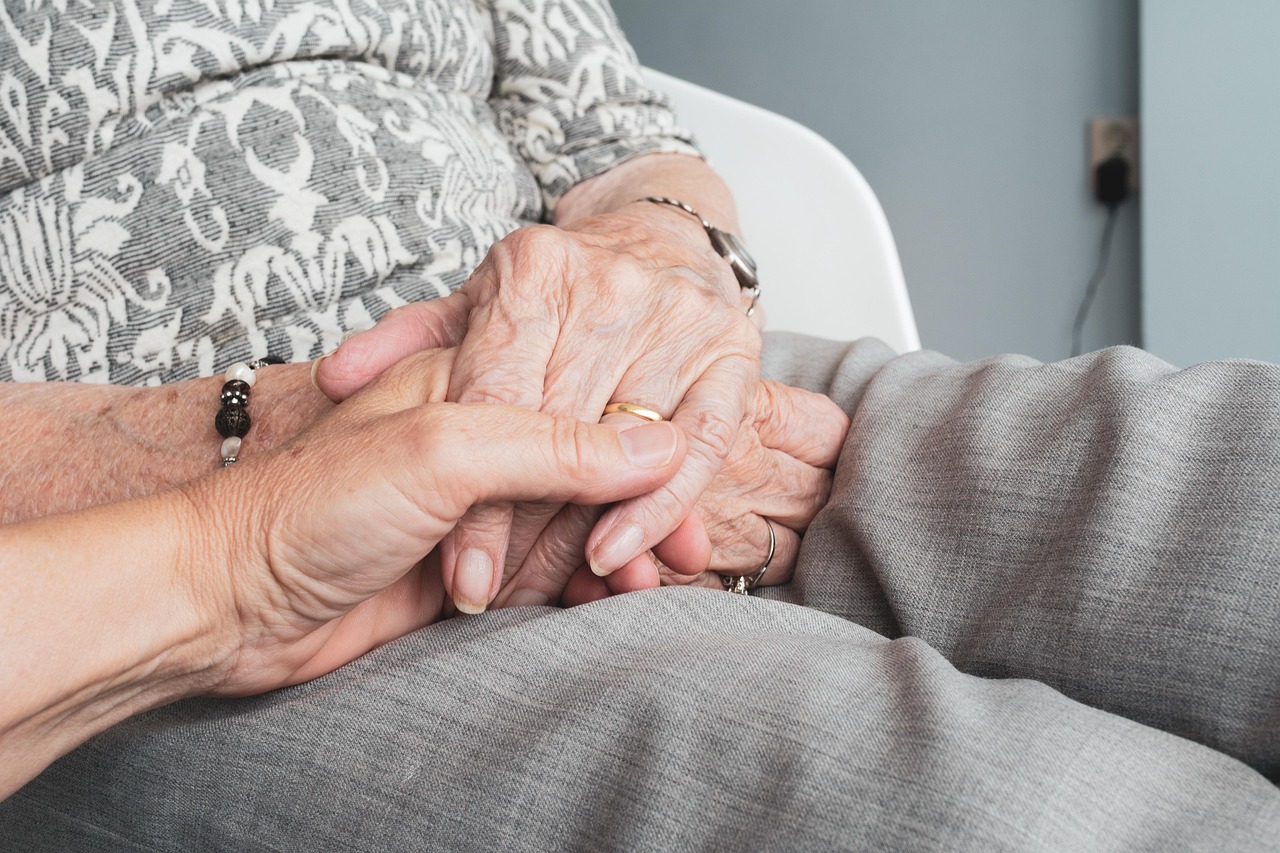
Benefits of Home Health and Companion Care for Seniors Living at Home
Aging in place becomes possible with home health care that provides personalized support, enhances safety, and assists with daily living while preserving dignity. Families gain peace of mind knowing their loved ones receive professional care in the familiar environment that supports emotional wellbeing.
Home health and companion care allow seniors to age in place while receiving tailored support that addresses their unique physical, emotional, and social needs.
Professional caregivers significantly enhance safety by providing supervision, preventing falls, and managing medications – a common source of complications for elderly individuals.
Daily living assistance such as personal care, nutritional support, and housekeeping helps seniors maintain their dignity while improving their quality of life.
Family members gain peace of mind knowing their loved ones receive consistent, professional care, especially when they live at a distance or balance caregiving with work responsibilities.
Remaining in one's familiar home environment while receiving appropriate support promotes better emotional wellbeing and often helps preserve cognitive abilities longer.
Why Seniors Overwhelmingly Prefer to Age in Place
The desire to remain in one's own home runs deep for most seniors. Beyond the comfort of familiar surroundings, aging in place represents independence, dignity, and control over daily life. Sage Senior Support recognizes that home isn't just a physical space—it's filled with memories, routines, and a sense of belonging that institutional settings simply cannot replicate.
When seniors stay in their homes with appropriate support, they typically experience better mental health outcomes and maintain their sense of identity. The ability to wake up in your own bedroom, enjoy coffee in your favorite chair, and move through spaces filled with personal history provides psychological benefits that directly impact overall wellbeing.
Home health and companion care make this preferred option possible by bridging the gap between complete independence and the support many seniors eventually need. This balanced approach acknowledges both the practical assistance required and the profound human need for autonomy and familiarity.
Essential Daily Living Support That Maintains Dignity
1. Personal Care Assistance with Privacy and Respect
Personal care represents some of the most intimate support seniors may need. Professional caregivers provide assistance with bathing, dressing, grooming, and toileting in ways that preserve dignity and foster independence wherever possible.
Rather than taking over completely, skilled caregivers offer just enough help to ensure safety and hygiene while encouraging seniors to handle what they can manage themselves. This nuanced approach maintains self-esteem and physical capabilities simultaneously. The trust developed during these personal interactions often becomes the foundation for a meaningful caregiver-client relationship that enhances the overall care experience.
2. Light Housekeeping to Create a Safe Environment
A clean, organized home isn't just pleasant—it's essential for senior safety and health. As mobility and energy levels decline, everyday tasks like vacuuming or changing bed linens can become surprisingly challenging or even hazardous.
Home care providers handle crucial housekeeping tasks that directly impact safety and wellbeing:
Removing clutter from walkways to prevent trips and falls
Sanitizing bathrooms and kitchens to reduce infection risks
Ensuring proper food storage to prevent foodborne illness
Maintaining clean bedding to prevent skin issues and improve sleep quality
These services create an environment where seniors can move safely and confidently through their homes while reducing the risk of accidents that could lead to hospitalization.
3. Meal Preparation and Nutritional Monitoring
Many seniors struggle with nutrition as appetite changes, cooking becomes more difficult, or dietary needs become more complex. I've seen countless clients whose health improved dramatically once they started receiving consistent nutritional support at home.
Caregivers don't just cook—they become nutrition partners who:
Create meals that balance taste preferences with health requirements
Shop for fresh ingredients that might be difficult for seniors to obtain themselves
Track fluid intake to prevent the dehydration that commonly affects older adults
Transform mealtimes from lonely experiences into social, enjoyable events
This nutritional support often reveals and addresses problems that would otherwise go unnoticed. A caregiver might notice that a client hasn't touched their breakfast several days in a row, potentially signaling a medication side effect, dental issue, or other health concern requiring attention.
Health Management in the Comfort of Home
1. Medication Organization and Timely Reminders
Medication errors represent a startlingly common reason for senior hospitalizations. Many older adults take multiple prescriptions with different schedules, increasing the complexity of medication management substantially. Home care providers create systems that dramatically reduce these risks.
Beyond simply reminding clients to take medications, caregivers implement comprehensive medication management by:
Setting up pill organizers clearly labeled by day and time
Coordinating with pharmacies for timely refills before medications run out
Documenting any missed doses or reactions for healthcare providers
Ensuring medications are stored properly (some require refrigeration or protection from light)
This systematic approach prevents potentially dangerous situations like double-dosing, missing critical medications, or continuing to take prescriptions that are causing adverse reactions.
2. Transportation to Medical Appointments
Consistent medical care becomes challenging when transportation barriers exist. Home care bridges this gap seamlessly. Instead of missed appointments or stressful coordination with various family members, seniors receive reliable transportation with someone who understands their specific needs.
Caregivers often serve as vital communication links during these appointments, taking notes about new instructions or medication changes that the senior might not fully remember or understand. This ensures that important healthcare guidance actually makes it back home and gets implemented properly.
3. Observing and Reporting Health Changes
Subtle health changes often appear gradually before major problems develop. A trained caregiver visiting regularly might notice that a client seems slightly more confused than usual, has developed a slight tremor, or is moving differently—small changes family members might miss during weekly visits.
These observations create an early warning system that can lead to timely medical intervention. Rather than discovering a problem during a crisis, caregivers help identify concerns when they're more manageable and treatment options are typically more effective.
Enhanced Safety and Fall Prevention
A single fall can permanently change a senior's trajectory, potentially ending their ability to live independently. Home care creates multiple layers of protection against this common threat.
Caregivers actively prevent falls through practical interventions like securing loose rugs, improving lighting in dimly lit areas, and ensuring frequently used items are within easy reach. They provide physical support during risky transfers like getting in and out of the shower or navigating stairs.
Beyond these immediate safeguards, caregivers often encourage appropriate movement and exercise that maintains strength and balance—the body's natural fall prevention system. This proactive approach to safety preserves both physical health and the psychological confidence needed to move freely through one's environment.
Relieving Family Caregiver Stress and Worry
1. Peace of Mind Through Professional Oversight
The emotional weight carried by family members concerned about an aging parent living alone is substantial. Adult children often find themselves checking their phones anxiously, wondering if their parent remembered to take crucial medication or whether they've fallen with no one to help.
Professional caregivers alleviate this constant worry. A text update confirming your mother has taken her heart medication, eaten lunch, and enjoyed her afternoon walk provides reassurance that simply can't be achieved through sporadic check-in calls. This peace of mind allows family relationships to remain primarily familial rather than primarily caregiving in nature.
2. Freedom from Employer Obligations and Liabilities
Hiring a caregiver directly seems straightforward until you realize it transforms you into an employer with all associated legal responsibilities. Home care agencies eliminate these complex obligations, handling:
Comprehensive background checks and professional credential verification
Payroll processing, tax withholding, and required filings
Worker's compensation coverage for on-the-job injuries
Liability insurance protection against potential claims
Caregiver training, supervision, and quality assurance
I've seen families face unexpected legal complications after directly hiring caregivers who were injured in their homes or who later filed for unemployment benefits. Agency care protects against these scenarios while ensuring caregivers receive proper employment benefits and protections—creating better outcomes for everyone involved.
Combating Social Isolation Through Companionship
1. Meaningful Conversation and Emotional Support
The quiet that fills a home when someone lives alone can become deafening over time. A television running in the background isn't the same as genuine human connection. Caregivers break this silence with conversation, laughter, and the simple comfort of another person's presence.
I remember one client who had stopped talking much at all until her caregiver discovered her passion for 1950s jazz. Their shared interest sparked animated discussions about concerts she'd attended decades earlier, breathing life back into her days. These connections often extend beyond casual conversation into meaningful relationships where seniors feel truly seen and valued.
Caregivers notice when someone needs encouragement during difficult days or celebration during good ones. This emotional attunement creates a supportive environment where seniors feel understood rather than just attended to.
2. Facilitation of Community Engagement
Staying connected to the wider world becomes challenging when driving is no longer safe or when physical limitations make outings seem daunting. Caregivers remove these barriers, helping seniors maintain their place in communities that give their lives meaning.
This support might look like accompanying a client to their weekly bridge club, helping them prepare for and host a grandchild's visit, or setting up video calls with distant friends. Many caregivers become skilled at finding the perfect balance of encouragement without pressure, gently supporting reengagement with favorite activities that might have fallen away.
For those with more significant physical limitations, caregivers transform potentially isolating medical appointments into opportunities for meaningful outings by adding stops at favorite cafés or parks when health permits.
Flexible Care That Adapts to Changing Needs
The journey of aging rarely follows a predictable path. A senior who needs minimal assistance today might face new challenges next month or next year. Home care shines in its ability to evolve alongside these changing circumstances.
Take Maria, who initially needed only medication reminders and light housekeeping following a minor stroke. When she developed arthritis that made dressing difficult, her care plan adapted to include morning help with buttons and shoelaces. Later, when walking became unsteady, her caregiver's hours extended to provide safe accompaniment during her daily neighborhood walks.
This gradual scaling of services allowed Maria to receive exactly the support she needed at each stage—never too much, which might have fostered dependency, nor too little, which could have compromised her safety. Home care's flexible nature creates this perfect middle ground where independence is preserved while necessary support is always available.
The Profound Emotional Benefit of Staying at Home
Home holds our histories. The doorframe marked with grandchildren's heights, the garden nurtured for decades, the kitchen where countless family meals were prepared—these spaces contain more than possessions; they hold identity itself.
When seniors can remain safely in these meaningful environments, they maintain connections to their life stories in ways that institutional settings simply cannot replicate. The family photos aren't just displayed on a small bedside table; they hang on walls throughout rooms filled with memories.
This continuation of life in familiar surroundings provides emotional stability during a time when many other changes may be occurring. The comfort of sleeping in one's own bed, following established routines, and maintaining cherished rituals creates a foundation of security that supports better mental and physical health outcomes.
For many seniors, home represents the last domain where they exercise full control and independence. Preserving this autonomy through appropriate support rather than relocation honors their dignity and respects their lifetime of self-determination.
Home health and companion care represent far more than practical assistance—they offer a pathway to aging with dignity, comfort, and continued purpose. By bringing support to seniors rather than relocating seniors to support, these services honor the profound human need for both assistance and autonomy.
The benefits extend to entire families, relieving the stress of long-distance worry and transforming relationships back to their essential nature rather than revolving primarily around caregiving tasks. This comprehensive approach creates sustainable, compassionate solutions that truly enhance quality of life.
Sage Senior Support specializes in creating personalized home care solutions that evolve with your loved one's changing needs while preserving the comfort and dignity of remaining at home.


